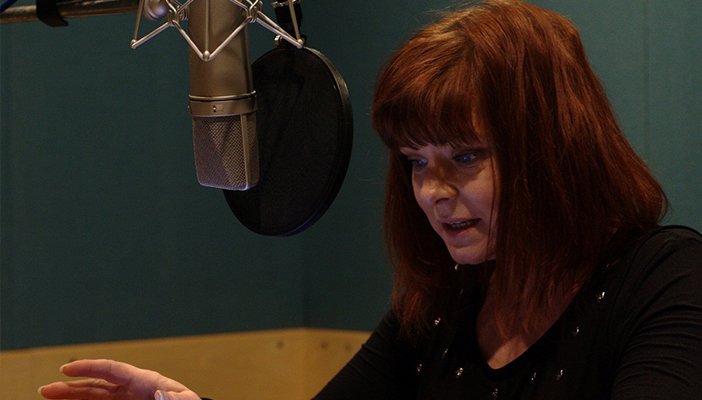How Talking Books are added to RNIB Library
RNIB’s Talking Book Library was founded in 1935. It's been one of our most loved services and we now offer more formats and titles than ever before.

Since its founding, Talking Books has brought the joy of reading to tens of thousands of blind and partially sighted people.
Our library offers entertainment, knowledge, and the immersion that every book-lover will recognise. In many cases, it provides a lifeline to the outside world. But how are Talking Books actually made?
These days most Talking Books added to the library are either donated by or purchased from commercial audio publishers.
Partnerships
In 2015 RNIB partnered with HarperCollins, one of the world’s foremost book publishers. Since that time every new audiobook from HarperCollins has been supplied free of charge to the Talking Book Library. HarperCollins very kindly donated their entire backlist of more than 2,000 unabridged audio titles. RNIB also has agreements with Penguin Random House, Bloomsbury, Faber and Faber, Dorling Kindersley, Princeton University Press, Simon & Schuster, Hachette (Hodder, Headline, Orion, Little Brown, Quercus imprints) through which we receive hundreds of audiobooks every month free of charge. We are very grateful for this generosity which enables us to make more high-quality unabridged audiobooks available to blind and partially sighted people.
Our studios
A number of new titles for the library are recorded in the RNIB Talking Book studios in Camden. Each month the library team meets to decide on the books that should be recorded, considering requests from library customers, award-winners, bestsellers and gaps in the collection.
RNIB has many talented narrators available, and after a speed-read of the book, we pick the person who can best bring it to life. A Talking Book can be 10 hours or more of reading, so narrators will take several sessions in the studios to complete the recording.
DAISY
Paper books have clear sections in chapters and page numbers, or you can save your place with a bookmark. DAISY (Digital Accessible Information System) gives talking book readers an experience as close to this as possible by offering a way to move between pages, chapters, or even phrases, and set digital bookmarks. After recording, we add the tags to enable these levels of navigation. We also add DAISY structuring to audiobooks acquired from publishers through purchase or donation.







